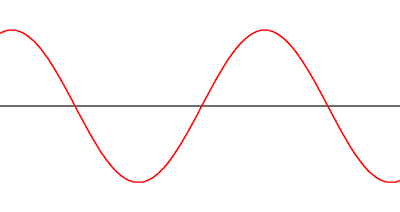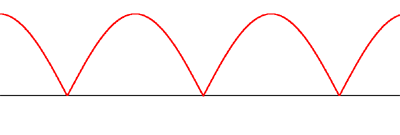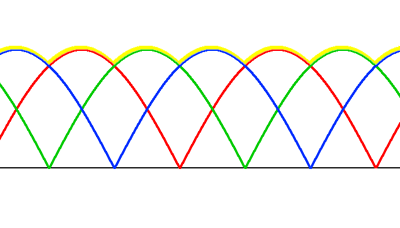|
|
This topic comprises 2 pages: 1 2
|
|
Author
|
Topic: 3-phase demand question
|
Jack Ondracek
Film God

Posts: 2348
From: Port Orchard, WA, USA
Registered: Oct 2002
|
 posted 10-18-2002 03:03 PM
posted 10-18-2002 03:03 PM





In another discussion, we're trying to establish which is the best way to go:Some of our accounts have 3-phase services, which include a peak demand surcharge on top of the charge for actual kilowatt-hour consumption. I've also seen a sites with both single and 3-phase installations. the 3-phase services supply (and meter) only that equipment which runs on 3-phase power. All other equipment and lighting is routed to single-phase panels. Given that some equipment can be purchased either single or 3-phase nowadays, The question is (site capacitity notwithstanding) whether a given amount of "work", horsepower or whatever, would be best run on single-phase lines up to a certain point, before acceding to 3-phase operation and its accompanying demand surcharges. Given a choice, is it economically equivalent to run area lights on 3-phase circuits if single phase panels area available? Would a new installation be smart to have both kinds of services installed, if 3-phase was also needed? Jack
| IP: Logged
|
|
Paul G. Thompson
The Weenie Man

Posts: 4718
From: Mount Vernon WA USA
Registered: Nov 2000
|
 posted 10-18-2002 04:35 PM
posted 10-18-2002 04:35 PM




Three Phase is the way to go in a commercial enviroment. If you elect single phase, you will regret it.In a residential envirmonet, as far as I know Three Phase is not available. It is not needed. Homes don't have heavy-draw HVAC's, Xenon power supplies in access of 3000 watts, 3 phase blower motors, 3 phase popcorn machines, 3 phase Icee Machines, - you name it. Call for 3 phase....   You will never regret it. Not only that, but all your 120 volt single phase stuff can be balanced on the load much easier. Remember, 208 volt open delta 3 phase is measured from leg to leg. Each leg to neutral is still 120 volts. there is a 120 degree rotation of 3 phase power, and that is why 208 is measured across each leg. You will never regret it. Not only that, but all your 120 volt single phase stuff can be balanced on the load much easier. Remember, 208 volt open delta 3 phase is measured from leg to leg. Each leg to neutral is still 120 volts. there is a 120 degree rotation of 3 phase power, and that is why 208 is measured across each leg. There are some other 3 phase configurations, but most of them are obsolete. One of them is closed delta. It has a wild leg with is useless for 120 volt devices. Puget Power is not installing those systems anymore. All new construction is 3 phase open delta.
| IP: Logged
|
|
|
|
Paul G. Thompson
The Weenie Man

Posts: 4718
From: Mount Vernon WA USA
Registered: Nov 2000
|
 posted 10-18-2002 07:24 PM
posted 10-18-2002 07:24 PM




Jack, maybe I mis-read your question. I think that the extra cost of bringing single phase into the building in addition to the 3 phase would be substancial. If you think it is cost effective because of a surcharge, maybe it would be a good idea. I was not aware of a demand surcharge in our area. As an example, Southsound Cinemas is strictly 3 phase, with no single phase power coming into the building. Another example, Old Cinema 5 in Mount Vernon (Now defunct and dead) was strictly three phase, with no single phase entering the building. By the way, welcome aboard! Good to have you with us. 
| IP: Logged
|
|
|
|
John Hawkinson
Film God

Posts: 2273
From: Cambridge, MA, USA
Registered: Feb 2002
|
 posted 10-18-2002 08:20 PM
posted 10-18-2002 08:20 PM




I believe Jack's question basically boils down to, "Are 3-phase devices more efficient than single-phase devices, and if so how much?"And the answer of course is, "it depends" (also known as "I don't personally know enough about this to give you a good answer"). It is the case that large motors run notably more efficiently on 3-phase power than single-phase. Googling around, Action Machinery has a chart that asserts that a 1/2 hp motor is 33% efficient in single-phase, and 50% efficient in 3-phase. But at 10hp, it's 64% and 67%. To answer Jack's question definitively, we'd need to know what the 3-phase rates and demand surcharges were, etc. I can't really speak to how efficient 3-phase rectifiers are vs. single-phase rectifiers, but I imagine the win is even less than with motors.
I think the only way you end up with both 3-phase and single-phase service is if the 3-phase service was added in to an existing single-phase installation.
--jhawk
| IP: Logged
|
|
|
|
John Hawkinson
Film God

Posts: 2273
From: Cambridge, MA, USA
Registered: Feb 2002
|
 posted 10-18-2002 08:52 PM
posted 10-18-2002 08:52 PM




Matthew asked, "208? I assume that 3 phase for theatres is 220-240."No, I think you have a misconception. In the US, 3-phase Y power always produces 120V hot-to-ground, and 208V hot-to-hot (well, for low-voltage. There's also 277V/480V, and higher voltages...) Single-phase power produces 240V. Commonly "220V" is used to refer to all sorts of things, including a) devices that take either 208V or 240V b) Only 208V devices c) Europoean (and other) power standards d) only 240V devices. We could probably go on at length here, to what end I am not so sure... --jhawk
| IP: Logged
|
|
Steve Kraus
Film God

Posts: 4094
From: Chicago, IL, USA
Registered: May 2000
|
 posted 10-18-2002 09:25 PM
posted 10-18-2002 09:25 PM



The attraction of three phase power for rectifiers is that it is much easier to get smooth DC with it.Single phase:
 After full-wave rectification:

Note how the voltage drops to zero each half cycle. Three phase:
 After full-wave rectification:
 The yellow across the top represents the rectifier output voltage. Without any filtration or regulation it's almost DC with some ripple. BTW, Euro household voltage used to be 220 but is now nomimally 230 just as we used to talk about 115 but it's now mostly about 120.
| IP: Logged
|
|
|
|
|
|
Paul G. Thompson
The Weenie Man

Posts: 4718
From: Mount Vernon WA USA
Registered: Nov 2000
|
 posted 10-19-2002 12:05 AM
posted 10-19-2002 12:05 AM




Steve, good job on your waveforms and explanations. It nicely shows why smaller value filter capacitors can be used in 3 phase retifiers.  Matthew, two legs of single phase power have a 180 degree phase shift, so it comes out to 240 volts. Three phase open delta power (or some call it "Y" power) has a 120 degree phase shift between each leg, and that's why it comes out to 208 volts between legs in the normal industrial market in the USA. Special applications might require a higher voltage - as Adam pointed out.
| IP: Logged
|
|
|
|
|
|
Steve Guttag
We forgot the crackers Gromit!!!

Posts: 12814
From: Annapolis, MD
Registered: Dec 1999
|
 posted 10-20-2002 08:10 PM
posted 10-20-2002 08:10 PM




If you don't have 3-phase power, and the question is on the value of obtaining 3-phase...nowadays it isn't as easy a question...Switching rectifiers often do NOT need 3-phase power... and there is no particular penalty for it on the final output...the larger rectifiers often will be 3-phase only to keep the current draw per leg down. As for projector motors...3-phase motors should be run via a controller of some sort to keep them from "banging" on. For cinema use, there are many motor controllers to choose from that will take 120VAC single phase and generate 230VAC 3-phase. Next I'm waiting for one of you guys to go through the math of WHY when you have 208 VAC when you have each leg starting with 120VAC (and a 120 degree phase shift).  Steve ------------------
"Old projectionists never die, they just changeover!"
| IP: Logged
|
|
|
|
All times are Central (GMT -6:00)
|
This topic comprises 2 pages: 1 2
|
Powered by Infopop Corporation
UBB.classicTM
6.3.1.2
The Film-Tech Forums are designed for various members related to the cinema industry to express their opinions, viewpoints and testimonials on various products, services and events based upon speculation, personal knowledge and factual information through use, therefore all views represented here allow no liability upon the publishers of this web site and the owners of said views assume no liability for any ill will resulting from these postings. The posts made here are for educational as well as entertainment purposes and as such anyone viewing this portion of the website must accept these views as statements of the author of that opinion
and agrees to release the authors from any and all liability.
|

 Home
Home
 Products
Products
 Store
Store
 Forum
Forum
 Warehouse
Warehouse
 Contact Us
Contact Us




 Printer-friendly view of this topic
Printer-friendly view of this topic






















